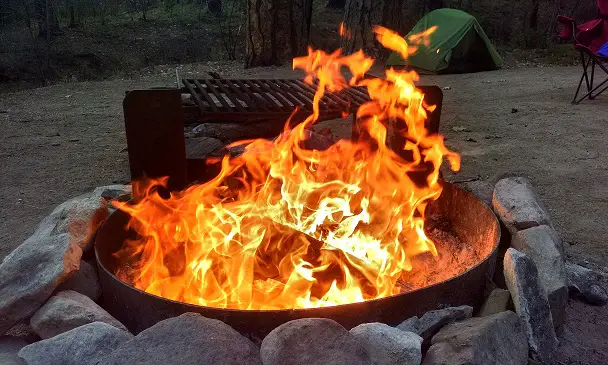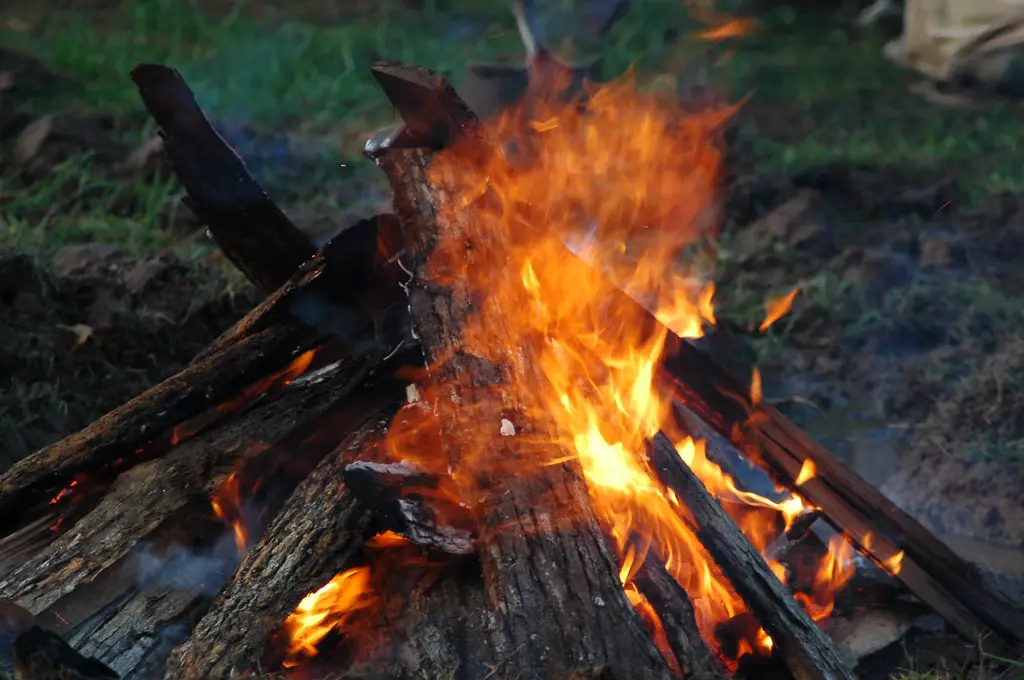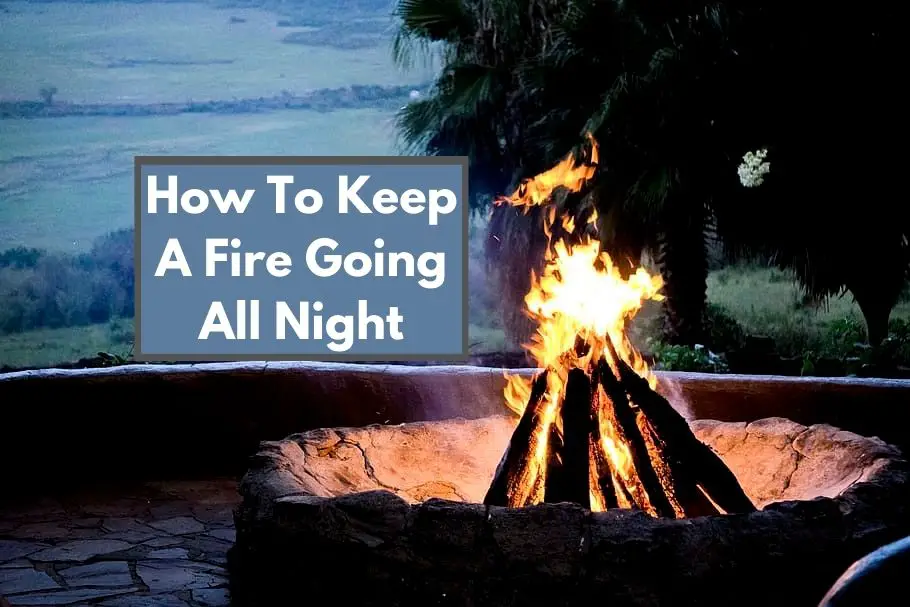It can be tricky to learn how to keep a fire going all night, especially if you’re not used to it.
In this blog post, we will outline how to keep a fire going in a fire pit, campfire, or fireplace.
By following these simple steps, you’ll be able to enjoy the warmth and ambiance of a roaring fire for hours on end!
How To Keep A Fire Going All Night: 11 Tips To Follow

Have you ever wanted to keep a fire going all night, but didn’t know how?
Here are some tips to follow:
Use Dry Wood
This is one of the most important things you can do to keep your fire going.
Wet wood will extinguish your fire quickly, so be sure to use only dry wood that has been properly seasoned.
Related: how long does wood take to dry after rain?
Build A Good Foundation
A good way to build a long-lasting fire is by starting with a large log on the bottom, followed by smaller logs and kindling on top.
This will give your fire the oxygen it needs to continue burning throughout the night.
Stoke Your Fire Regularly
Stoking your fire regularly is key to keeping a fire burning all night.
Use a poker, stick, or camping shovel to stir up the ashes and embers, which will help to oxygenate the fire and keep it burning brightly.
Keep Adding Wood
In order for your fire to continue burning, you’ll need to add more fuel to it periodically.
This can be in the form of logs, sticks, or even coal.
Try to add multiple logs at a time if you can so that they can transfer the heat between them and allow each of them to catch fire more easily.
Read more: what wood is bad to burn?
Start With Softwood, Finish With Hardwood
Softwoods like firs and pine are easy to get started, but burn up quickly.
These are best used at the beginning of your fire when you’re trying to get the bigger pieces of wood to burn.
Hardwoods last longer and provide better heat, but are harder to get started, making them better to put on after the kindling is started and to fuel your fire throughout the night.
Good hardwoods for keeping a fire going are cedar, oak, maple, ash, and birch.
Don’t Let It Get Too Hot
If your fire gets too hot, it will burn through all of the fuel you’ve added and go out quickly.
So be sure to keep an eye on it and adjust the size of the flames as needed.
Shield It From The Wind
If it’s a windy night, be sure to build your campfire in a protected area so that the wind doesn’t blow out the flames.
If you’re using a firepit, place it near a windbreak so gusts of wind don’t extinguish your fire.
Always keep at least a 10 foot distance between your fire and any flammable surface, such as trees or your home or tent.
Start With A Dry Fire Pit
If you’re using a fire pit, it’s important to start with a dry one.
Wet fire pits can cause your fire to go out quickly, because you’re starting off with wet wood, which is harder to burn (and also creates more smoke).
Be sure to clean out the fire pit before starting a new fire, as ash can also stifle flames.
If you’re trying to keep a campfire going, start with a clean fire ring, clearing out any debris.
If the campfire ring is muddy, start by trying to get the bigger logs raised off the ground by separating them with some smaller sticks or twigs to help air and flame reach the underside of them.
Promote Airflow In Your Fire
If you’re trying to keep a fire going in your fireplace or fire pit, be sure to promote airflow by opening any flues or vents.
This will allow oxygen to flow into the fire which is necessary for combustion.
Additionally, you’ll need to stack your wood so that there’s space between each log and not “stuff” everything too close together.
Check The Forecast
Obviously if there’s rain in the forecast, chances are your fire pit or campfire isn’t going to be burning very long.
Try to cover and protect your firewood from the pending weather and start your fire after the rain is over.
Add Rocks To Your Fire Pit
If you have a fire pit, you can help to reflect heat by adding rocks around the perimeter of your fire, and adding them whenever the fire gets low.
Although rocks don’t catch fire, they do retain the heat and help preserve the energy demand on wood to get lit and stay lit.
Be sure to use smaller rocks that you are certain are dry, as wet rocks can explode when heated, and you run the risk of an air pocket or moisture being held in a larger rock.
Should You Keep A Fire Going All Night?

As appealing as falling asleep by the fire can be, should you really let a campfire or fireplace burn all night?
Common sense says no, unless it’s a survival situation.
If no one is awake to watch the fire, it could turn into a dangerous situation, so we generally advise that you should not let your fire burn all night.
Follow these safety tips if you must keep a fire burning all night:
- Make sure there is nothing flammable or combustible near your fire (including wood not in the fire)!
- Keep your flames small.
- Recess the fire pit or fire ring if you can.
- Don’t leave the area.
- Have an extinguisher or water source nearby.
- Don’t keep a fire going all night in windy weather.
- Avoid burning an all-night fire in areas where it’s been extremely dry (you run the risk of starting a forest fire).
Wrapping Up How To Keep A Fire Going All Night
As you can see, there are a few things to consider if you want to keep your fire burning all night.
Use these tips to help you build a safer, longer-lasting fire that will keep you warm until the sun comes up. Stay safe and enjoy your time outdoors!
Be sure to check out our other helpful camping guides while you’re here:
- The best camping water containers
- The best camping string lights
- How to lock a tent
- What is a tent vestibule?
- How to make a DIY camping bed
- The best campfire cooking kit options
- Tents that fit a queen air mattress
- How long does wood take to dry after rain?
- How long does Jetboil fuel last?
- The best heated camping chairs
- Our guide to cowboy camping

